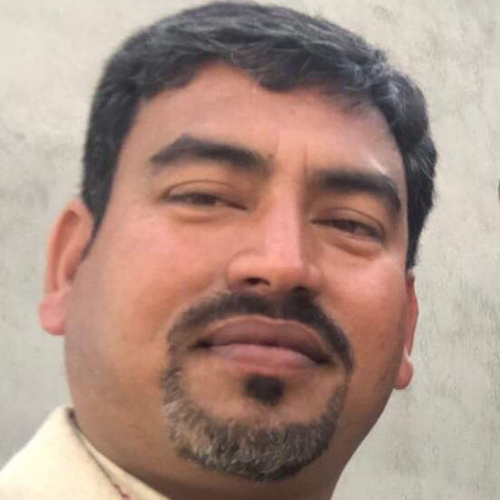Before the global Covid-19 pandemic, private hospitals in Dhangadhi would compete for getting as many patients as possible.
Some private hospitals even asked doctors at Seti Provincial Hospital, a government hospital in Dhangadhi, to refer patients to their hospitals, according to Dhanapati Dhungel, a consumer rights activist.
However, the situation has changed after a coronavirus case was reported in Dhangadhi. These days most private hospitals in the city have closed their doors to patients seeking treatment for various ailments.
Kailali Hospital and Om Asha Hospital in Dhangadhi have stopped emergency services and have only kept their pharmacies open.
Closure of private hospitals at this crucial time has evoked much criticism from different quarters not only in Dhangadhi but across the country. On Tuesday morning, Nripa Bahadur Bada, mayor of the Dhangadhi Sub-metropolitan City, took the decision to cancel the licence of private hospitals that fail to treat patients.
Since the mayor’s announcement, owners of private hospitals resumed services from Thursday onwards. “However, many are still refusing treatment to patients of fever and common cold,” Dhungel said.
There are 11 private hospitals in Dhangadhi—Dhangadhi Netralaya, Nawajeeban, CP, Kailali, City Polyclinic, Nova, Om Aasha, Maya Metro, Sarathi, and Nisarga.
By Friday morning, Maya Metro, Sarathi, Nisarga, Kailali Hospital and Nawajeeban Hospitals had started to provide emergency services.
Only one private hospital, Sarathi, has been running OPD services in the district. Bed Prakash Joshi, manager of Sarathi Hospital, said: “Representatives of the Private Hospital Association telephoned me on Thursday morning, asking me to close the hospital. But we haven’t.”
However, since the mayor’s announcement, the Private Hospital Association in Kailali, issued a notice on Wednesday stating that health services would resume the same day. The statement read: “We want to coordinate with government agencies continuously and are ready to provide our resources to the government if needed.”
In Province 2, Chief Minister Lal Babu Raut on Tuesday announced to cancel the registration of private hospitals refusing treatment to patients. Most private hospitals in Province 2 refused to treat patients suffering from fever and common cold. Following several complaints, Raut had directed the chief district officers of the eight districts to cancel the registration of such private hospitals.
Frequently asked questions about the coronavirus outbreak
UPDATED as of September 22, 2020
What is Covid-19?
Covid-19, short for coronavirus disease, is an illness caused by the coronavirus SARS-CoV-2, short for severe acute respiratory syndrome coronavirus 2. Common symptoms of the disease include fever, dry cough, fatigue, shortness of breath and breathing difficulties. In severe cases, the infection can cause pneumonia, severe acute respiratory syndrome, kidney failure and even death.
How contagious is Covid-19?
Covid-19 can spread easily from person to person, especially in enclosed spaces. The virus can travel through the air in respiratory droplets produced when a sick person breathes, talks, coughs or sneezes. As the virus can also survive on plastic and steel surfaces for up to 72 hours and on cardboard for up to 24 hours, any contact with such surfaces can also spread the virus. Symptoms take between two to 14 days to appear, during which time the carrier is believed to be contagious.
Where did the virus come from?
The virus was first identified in Wuhan, China in late December. The coronavirus is a large family of viruses that is responsible for everything from the common cold to Middle East Respiratory Syndrome (MERS) and Severe Acute Respiratory Syndrome (SARS). After an initial outbreak in Wuhan that spread across Hubei province, eventually infecting over 80,000 and killing more than 3,000, new infection rates in mainland China have dropped. However, the disease has since spread across the world at an alarming rate.
What is the current status of Covid-19?
The World Health Organisation has called the ongoing outbreak a “pandemic” and urged countries across the world to take precautionary measures. Covid-19 has spread to 213 countries and territories around the world and infected more than 31,405,983 people with 967,505 deaths and 22,990,260 recoveries. In South Asia, India has reported the highest number of infections at 5,557,573 with 88,943 deaths. While Pakistan has reported 306,304 confirmed cases with 6,420 deaths. Nepal has so far reported 65,276 cases with 427 deaths.
How dangerous is the disease?
The mortality rate for Covid-19 is estimated to be 3.6 percent, but new studies have put the rate slightly higher at 5.7 percent. Although Covid-19 is not too dangerous to young healthy people, older individuals and those with immune-compromised systems are at greater risk of death. People with chronic medical conditions like heart disease, diabetes and lung disease, or those who’ve recently undergone serious medical procedures, are also at risk.
How do I keep myself safe?
The WHO advises that the most important thing you can do is wash your hands frequently with soap and water for at least 20 seconds or use hand sanitizers with at least 60 percent alcohol content. Avoid touching your eyes, nose and mouth with unclean hands. Clean and disinfect frequently used surfaces like your computers and phones. Avoid large crowds of people. Seek medical attention if symptoms persist for longer than a few days.
Is it time to panic?
No. The government has imposed a lockdown to limit the spread of the virus. There is no need to begin stockpiling food, cooking gas or hand sanitizers. However, it is always prudent to take sensible precautions like the ones identified above.





 28.24°C Kathmandu
28.24°C Kathmandu
















